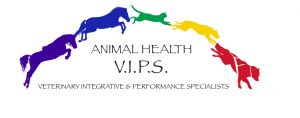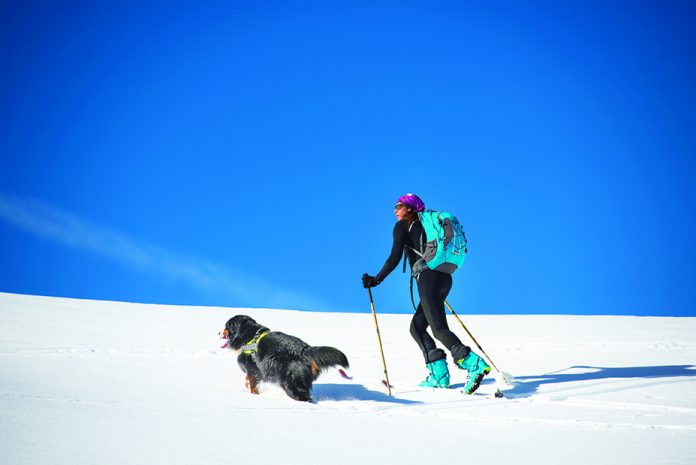Park City is known for its beautiful scenery and active people who are constantly on the go. More and more of us today enjoy activities outside with our equally active dogs, even in the winter. But, with all that hiking, skiing and snowshoeing, our dogs can also develop the same weekend warrior aches and pains, even injuries, as those experienced in people. Since 2010, veterinary medicine has recognized the physical and medical needs of the active canine as its own unique medical specialty. Park City, home to many elite athletes and the top-notch human sports medicine specialists that treat them, can also now lay claim to having the only veterinary practice in Utah specializing in canine sports medicine and rehabilitation…and from a uniquely integrative approach.
If you have an active dog, then here are three tips to keep your dog injury-free as you both enjoy the winter activities around town.
 ✳If you are visiting from a lower elevation, remember that dogs need to acclimate to altitude too. Take slow or short walks for the first couple of days letting both yourself and
✳If you are visiting from a lower elevation, remember that dogs need to acclimate to altitude too. Take slow or short walks for the first couple of days letting both yourself and
your dog get used to the thinner air. Injuries are more likely to happen when muscles are fatigued from overdoing it in low oxygen. Stop and smell the fresh pines or elk poop for the fi rst couple of days.
✳Your active dog needs to stay as hydrated and full of energy as you. Even in winter, always take enough water for the two of you, in case no liquid water sources are nearby. Also take a high carbohydrate snack for your dog such as a honey pack, carrots, berries or jerky treats made with molasses, glycerin or maltose. If you see your dog starting to tire out, take a short break and give a small carb snack to allow for muscle recovery. If it works for Search-and-Rescue dogs, it will work for your active pup.
✳Be mindful of snow conditions, especially if your dog isn’t used to it. Injuries to muscles, tendons and ligaments can occur from punching through crusty snow or letting snow, ice or road salt build up between toes. Consider using a spray vegetable oil on the bottom of their feet before a snow hike, or purchase the same kind of light and inexpensive nylon booties that sled dogs use to protect feet.
 Please feel free to contact Animal Health VIPS at 435-647-0807 if you have any active dog questions.
Please feel free to contact Animal Health VIPS at 435-647-0807 if you have any active dog questions.
Dr. Henneman is a Board-certified canine sports medicine and rehabilitation specialist that treats her patients with acupuncture, chiropractic services and treats. As a six-time Iditarod trail veterinarian, she brings that elite canine athlete knowledge to the active pet.



















